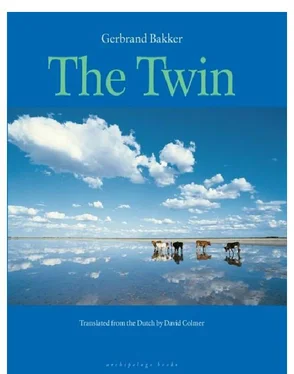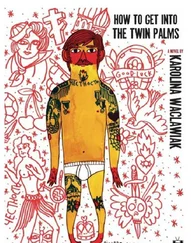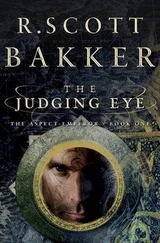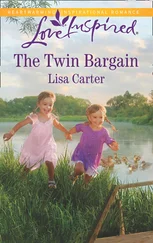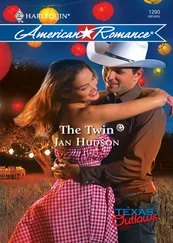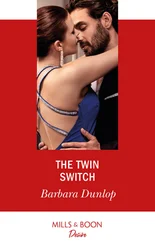Of course it’s Father I’m cursing, it’s not the cows’ fault, especially not the cows we have now.
“Helmer?”
“Yes,” I say. “I’m here”
“When shall I come?”
“Whenever you like.”
For a long time that afternoon I sit with the donkeys, feeding them pieces of mangold. Although it’s stopped raining, it’s still gray. The light is on in the donkey shed. I recognized her voice.
Yesterday evening, before I poured diesel over the woodpile, Ada, Teun, Ronald and I stood by the donkeys for a while. Cold stars were shining over the shed. Ada’s husband wasn’t there, he wanted to keep his eye on a cow that was about to calve. Plus — according to Ada — he doesn’t like “the festive season,” I had made doughnuts, a task I have taken upon myself every New Year since Mother’s death. Father was sitting very briefly at his old place at the kitchen table. He worked hard to keep himself upright on his elbows and ate two doughnuts. I sat in Mother’s old spot and stared at him while he and Ada talked. Teun and Ronald shared the other kitchen chair. Ronald kept his eye on Father and seemed a bit scared, he had trouble swallowing. Father told Ada no less than three times that he wanted to see a doctor. When she shot me a questioning glance after the third time, I raised my eyebrows significantly.
“I hope you get better soon, Mr. van Wonderen,” she said as I carried him out of the kitchen.
“Do you have heating upstairs?” she asked in a concerned voice when I came back down.
“No,” I said. “But he’s a tough old codger. A shame he’s not altogether with it any more. He’s going downhill fast.”
“Is he dying?” asked Ronald, eating a doughnut at top speed now there was nothing to hold him back.
“Ronald!” Ada said.
“When are we going to light the fire?” asked Teun.
And then the donkeys, and then the New Year’s bonfire, and then a smoldering board (from my old bed) falling on Ronald’s hand. He’d got a little too keen while poking the fire with a thick branch.
“Finished!” Father calls. The flush gurgles dully, as if the lid is closed.
I’ve been standing for a good while in the hall, in front of the toilet door. The doughnuts have got his bowels working. I contract my nostrils, open the door and lift him up. He pulls up his own pajama bottoms. “Wash your hands,” I say.
He picks up the piece of soap on the sink and I turn on the tap.
Carrying him upstairs, I ask, “Do you actually know what day it is today?”
“Christmas?” he says.
“New Year’s Day. You’re not right in the head any more.”
“No?”
“No.”
“You’re the one who’s not right in the head. I’m not mad.”
“Have it your own way,” I say, laying him on the bed.
“Ada was here last night,” he says.
“Yes, she was.” I sit down on the chair in front of the window. Maybe I should buy an electric heater after all, it’s damp in here. Before you know it he’ll have all kinds of terrible fungal infections. I rest my elbows on the armrests and rub my hands together. The wall with photos, samplers and paintings is a big rectangle with little rectangles and squares on it, I can’t see any detail. I stand up and turn on the light. With my hands behind my back, like someone visiting a gallery, I walk along the wall extremely slowly before sitting down again. “Why did your mother embroider two samplers instead of just one?”
“You’d have to ask her,” Father says reluctantly.
“I can’t.”
“No, you can’t,” he says with a sigh.
“Did she think one of us wouldn’t make it?”
“I don’t know.”
“Was it so you could throw one of them out?”
“Shouldn’t you be milking?”
“Soon. The cows aren’t going anywhere.”
“Hmmm. .”
“It was economical of her,” I say. “No, not economical, practical.”
“Yes, practical,” says Father.
“But still, when someone dies at nineteen, you don’t take their sampler off the wall.”
“No.”
I talk, but hardly hear what I’m saying. The telephone conversation with Riet is on my mind. That’s what I want to talk about, I wanted to taunt him with it and instead I’m taunting him with our samplers. Until five minutes ago I’d never stopped to think why grandmother Van Wonderen embroidered two separate samplers. One sampler must have been a big enough job as it was. Did Mother actually know she was going to have twins? I sigh and open my eyes. I am really not in the mood for tormenting Father. It’s New Year’s Day.
“What’s the matter?” asks Father.
I open my eyes. “Nothing.” I get up and walk to the door. I pull up the weights of the grandfather clock. “Kale tonight?”
“Delicious,” says Father. He looks happy. It’s unbearable.
“Light on?”
“Yes.”
“Curtains closed?”
“Yes.”
I walk back to the window and draw the curtains. The lamppost in front of the farm is already on. Now it’s been fixed, no one can stare in unseen.
The bulb in the scullery casts a dim glow up the staircase and onto the landing. The door of the new room is open. As an invitation: come and fill me. I look at the key in the lock of the bedroom door. I look but don’t turn it. I hurry downstairs.
I ring Ada to ask about Ronald’s hand.
“It’s fine,” she says, “it’s not that bad at all.”
I’m glad to hear it. It was my fire.
Mother was not just outrageously ugly. She was outrageously kind-hearted too. Her eyes were always a little watery, a bit moist, perhaps because of the slight bulge. There was something wrong with her thyroid, and those moist eyes softened her view of the world. Father beat and scolded, Mother only had to look at Henk and me to make things better again. She looked at us a lot.
Henk was Father’s boy; I was not Mother’s boy. She didn’t differentiate, although I did notice that, during the period when Riet joined us at the table, she looked at me more often than she looked at Henk. It wasn’t a look of consolation, it was a look of encouragement, like a hand on my back to push me forward. Mother got along perfectly well with Riet, but her presence also placed Mother in a dilemma: through no fault of her own, her boys were no longer equal. Father had no such scruples, he had taken sides long before.
When she died (not from an overactive thyroid, but from a heart attack), Father could no longer make his spoon jump in his coffee cup the way Henk had as well. After all, there was no one there to answer the call. I was there, of course, but he wasn’t reckless enough to provoke me like that. We just stopped drinking coffee, or we drank coffee separately. Ada hadn’t moved in next door yet, she never knew Mother.
She had the heart attack in the shower. That means it was a Saturday. I wasn’t at home and it wouldn’t have occurred to Father to go and check, despite her staying in the bathroom much longer than usual. Some people have a heart attack and just keep on going, some people collapse and never get up again. Mother never got up again.
I never blamed her for not speaking up the day Father sent Riet away and told me I was done “there in Amsterdam.” What if, instead of crying, she had said something to protect me from spending my life milking cows? Would I have seized the opportunity? I don’t think so. I was nineteen, I was already a man. I could have stuck up for myself. I didn’t, I stayed as silent as Mother. Long after Riet had disappeared behind the window frame (by then she was sure to be up on the dyke and I’d had plenty of time to commit to memory a place where I might find a nest of peewit’s eggs), I turned around. To the left of Father’s back I saw her half-emptied plate, the cutlery placed neatly on either side. To the right of Father’s back sat Mother, looking at me even more moistly than usual. At that moment an alliance was sealed. I couldn’t say exactly what that alliance involved, but it definitely included some we’ll-get-through-this-together. I sat back down at the table and we finished the meal in silence. The next morning Father and I milked the cows together. After the milking I put my textbooks in a cardboard box and put the box in Henk’s built-in wardrobe. Weeks later a letter from my tutor arrived, asking where I was and whether I was planning on coming back. I put the unanswered letter in with the books. I’ve ignored the cardboard box ever since.
Читать дальше
